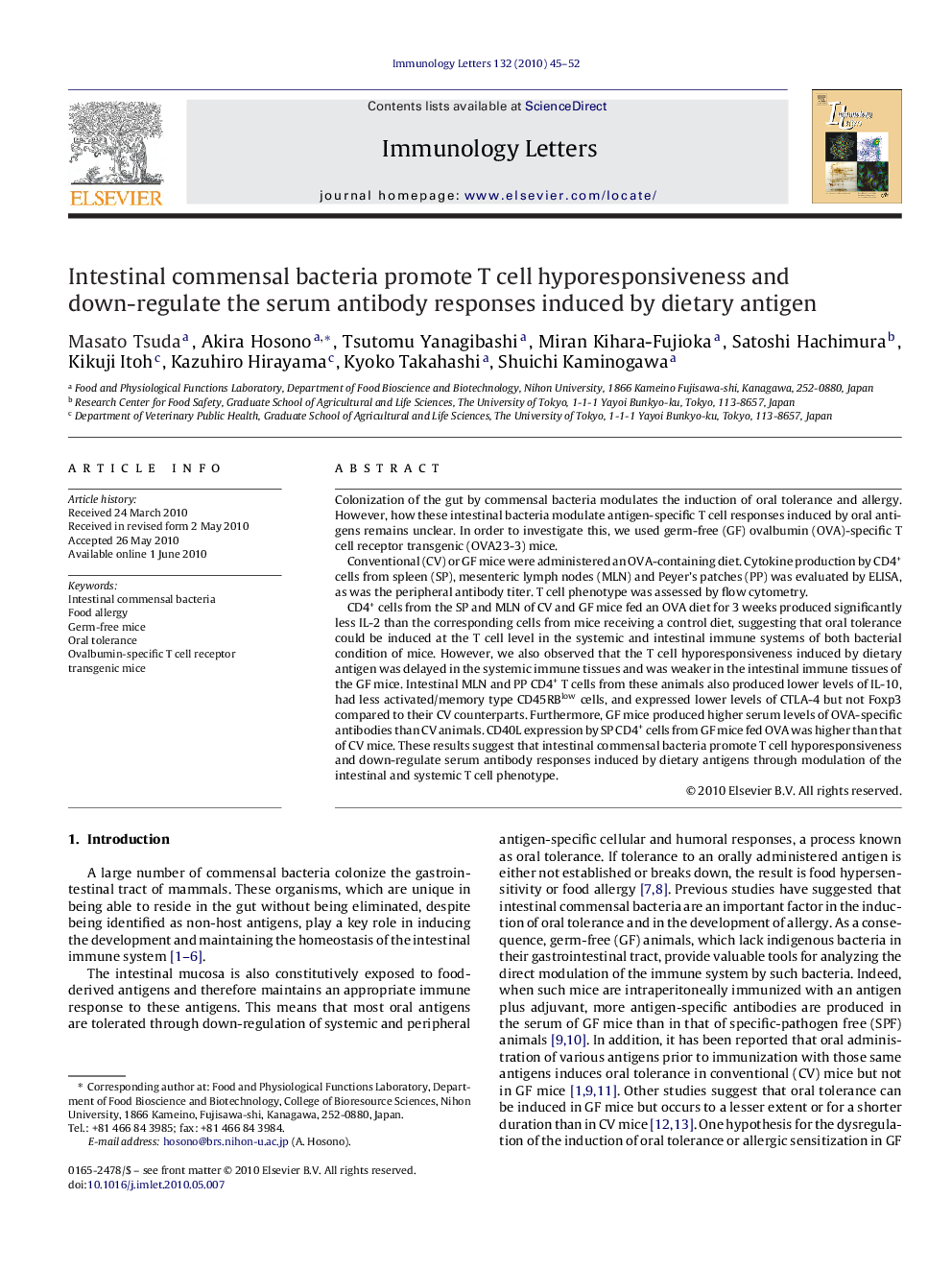| Article ID | Journal | Published Year | Pages | File Type |
|---|---|---|---|---|
| 6117489 | Immunology Letters | 2010 | 8 Pages |
Abstract
CD4+ cells from the SP and MLN of CV and GF mice fed an OVA diet for 3 weeks produced significantly less IL-2 than the corresponding cells from mice receiving a control diet, suggesting that oral tolerance could be induced at the T cell level in the systemic and intestinal immune systems of both bacterial condition of mice. However, we also observed that the T cell hyporesponsiveness induced by dietary antigen was delayed in the systemic immune tissues and was weaker in the intestinal immune tissues of the GF mice. Intestinal MLN and PP CD4+ T cells from these animals also produced lower levels of IL-10, had less activated/memory type CD45RBlow cells, and expressed lower levels of CTLA-4 but not Foxp3 compared to their CV counterparts. Furthermore, GF mice produced higher serum levels of OVA-specific antibodies than CV animals. CD40L expression by SP CD4+ cells from GF mice fed OVA was higher than that of CV mice. These results suggest that intestinal commensal bacteria promote T cell hyporesponsiveness and down-regulate serum antibody responses induced by dietary antigens through modulation of the intestinal and systemic T cell phenotype.
Related Topics
Life Sciences
Immunology and Microbiology
Immunology
Authors
Masato Tsuda, Akira Hosono, Tsutomu Yanagibashi, Miran Kihara-Fujioka, Satoshi Hachimura, Kikuji Itoh, Kazuhiro Hirayama, Kyoko Takahashi, Shuichi Kaminogawa,
